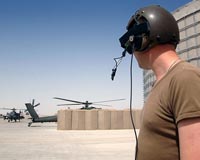| . |  |
. |
Brussels (AFP) June 10, 2010 The commander of NATO forces in Afghanistan said on Thursday a make-or-break operation in the south will move at a slower pace than initially planned, amid a shortage of Afghan security forces and a wary local population. General Stanley McChrystal and other senior officers had previously said operations around Kandahar -- the birthplace of the Taliban -- would climax this summer with an influx of American forces, but have begun scaling back their statements. "I do think it will happen more slowly than we originally anticipated," McChrystal told reporters in Brussels. His forecast echoed comments by his deputy in southern Afghanistan, suggesting the Kandahar area is presenting a bigger challenge than NATO commanders had expected. The delay in Kandahar, combined with rising casualties and tough fighting in neighbouring Helmand province, raised fresh questions about the course of the war as commanders face intense political pressure on both sides of the Atlantic to show progress. Brigadier General Ben Hodges, head of US forces in the south, told AFP on Thursday the offensive in outlying districts of Kandahar city could be delayed by two or three months. A lack of Afghan army and police units meant US special forces were helping villages organise militia to protect themselves against insurgents. Apart from the shortage of Afghan forces, McChrystal said more political work was required in Kandahar to ensure support from local leaders and the local population. "I don't intend to hurry it. We want to make sure we've got conditions shaped politically with the local leaders, with the people. "We really want the people to understand, and literally pull the operation towards them, as opposed to feel as though that they're being forced with something they didn't want." The commander added that it will "take a number of months for this to play out." The slower pace in Kandahar partly reflected lessons learned in a February offensive in the neighboring province of Helmand, where US-led forces moved into the Marjah district once dominated by the Taliban. Setting up a new local government in Marjah proved "even more complex than we thought" and in hindsight, it was clear more advance work should have been done to ensure civilian services there, McChrystal said. Despite the slowed pace in Kandahar, he said it would be "very clear" by the end of the year if the operation in Kandahar was making progress. McChrystal, who spoke on the sidelines of a meeting of NATO defence ministers, said a foundation had been laid for success in the war, with plans to begin a handover of security duties to Afghan forces next year. As part of a surge of US and NATO troops in Afghanistan, McChrystal also said US special operations forces had nearly tripled since he took over a year ago, capturing or killing 121 insurgent leaders. The Taliban no longer "owned" the Helmand river valley, he said, while training and recruitment of Afghan security forces had dramatically accelerated. But there was still a shortfall of about 450 instructors to train Afghan forces, and NATO Secretary General Anders Fogh Rasmussen said on Thursday he would lobby allies to close the gap. Amid escalating violence, a NATO soldier was killed in a bomb attack in the south on Thursday, the 24th to die this week. The NATO chief said higher casualties had to be expected as a larger international force goes after Taliban strongholds in Helmand and Kandahar. "I foresee a very tough time in the coming weeks and months," he told a press conference.
earlier related report Mullen did not assign blame for the blast but blamed the Taliban for stepping up violence as US forces prepare a long-awaited offensive on their stronghold of Kandahar in southern Afghanistan. "Our thoughts and our prayers go out to their loved ones. We grieve for them and with them," Mullen said of the blast, which according to a local official killed at least 39 people and wounded 73 more. "Sadly, there will be more casualties. Of that I am certain," Mullen told a dinner of the Asia Society in Washington. Mullen pledged renewed determination to fighting the Taliban but warned that the United States and its allies would have to do "heavy lifting." "We must ourselves resist the temptation to lose heart," he said. "We will succeed in Afghanistan. We will prevent that country from ever becoming a safe haven again, but it will be a slow, messy and often deadly business," he said. US troops have fought in Afghanistan since the aftermath of the September 11, 2001 attacks, when the Taliban regime gave haven to Al-Qaeda.
Share This Article With Planet Earth
Related Links News From Across The Stans
 Taliban down NATO helicopter in bloody week for alliance
Taliban down NATO helicopter in bloody week for allianceKabul (AFP) June 9, 2010 Taliban militants shot down a NATO helicopter in southern Afghanistan on Wednesday killing four US servicemen and bringing to 23 the number of foreign soldiers killed in escalating violence this week. The International Security Assistance Force (ISAF) helicopter came down in Helmand province, a stronghold of Taliban fighters trying to topple the Western-backed government and eject the 130,00 ... read more |
|
| The content herein, unless otherwise known to be public domain, are Copyright 1995-2010 - SpaceDaily. AFP and UPI Wire Stories are copyright Agence France-Presse and United Press International. ESA Portal Reports are copyright European Space Agency. All NASA sourced material is public domain. Additional copyrights may apply in whole or part to other bona fide parties. Advertising does not imply endorsement,agreement or approval of any opinions, statements or information provided by SpaceDaily on any Web page published or hosted by SpaceDaily. Privacy Statement |